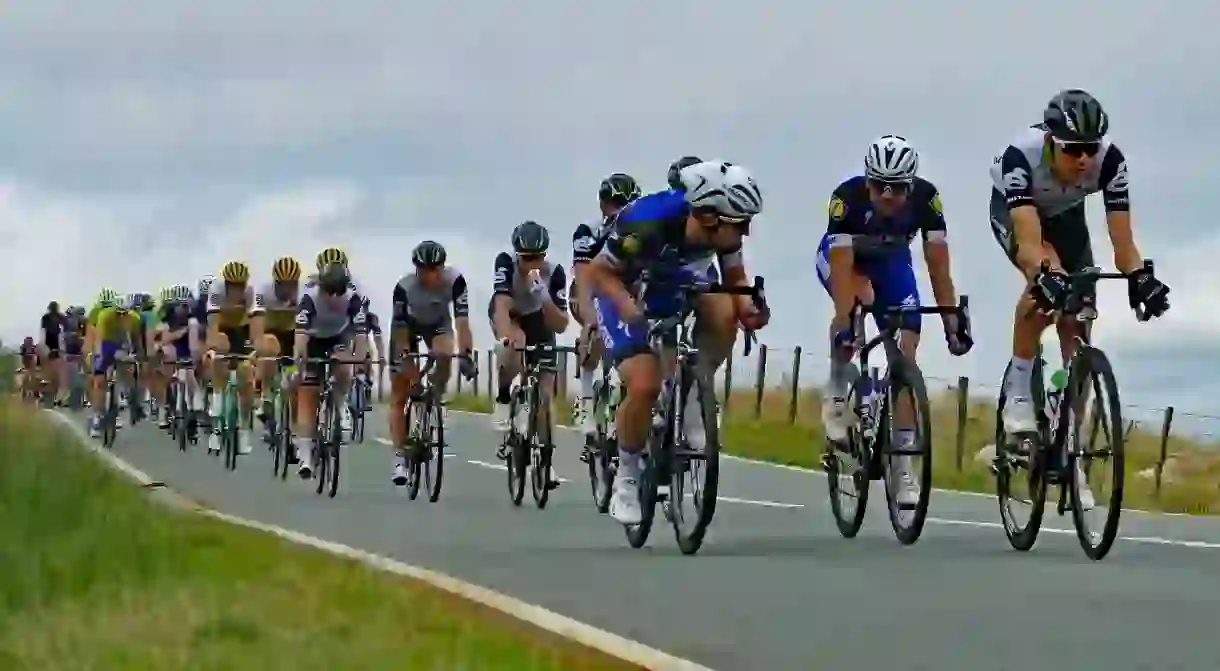Learn How to How Win a Bike Race, According to the Pros

With the Tour de France rapidly approaching Culture Trip sat down with Peter Cossins, author of Full Gas: How to Win a Bike Race – Tactics from Inside the Peloton, to learn about all the goings on within professional cycling.
Break
Peter Cossins (PC): “Thomas De Gendt is today’s breakaway artist. He will look at a route and think there are certain stages where he has a chance in the right break because the GC (General Classification) riders won’t be interested, and the sprinters won’t be interested. Once you factor is those working for teammates, there’ll be about 50 or so who might break.
“He says there is no such thing as a kamikaze break – each one provides experience. You’re looking at all of the other riders and how they work, whether they do a short turn, if they’re better on the climb, good on the descent. Most breaks get caught near the finish, but he’s built up this knowledge to utilise at other points. I like this idea of breakaways not being hopeless. There is something happening in a bike race all the time, in the bunch, in the chase, in the breakaway – it’s relentless.”

Make friends
PC: “Riders and teams need to cooperate with one another every day. Team managers will get together before a stage, especially sprinting teams. When you see a break being chased down by teams with sprinters, that’s because they’ve planned it beforehand.
“Mark Cavendish comes from the track so he can manoeuvre incredibly quickly in a crowd, and often uses other people’s team trains. He constantly looks for back wheels, even if they’re on other teams, if they’re in a better position.”
Plan, plan and plan again
PC: “In the book I talk to Nicolas Portal (directeur sportif at Team Sky), who spent a long time talking tactics. Lots of people say cycling is a game of poker on two wheels, having to think and plot several moves ahead. Portal doesn’t like that term, he says ‘I don’t take risks with my riders, I play chess with my riders.’
“In most race stages something unforeseen happens and all plans go out the window. There’s a crash, or it starts raining, whatever it might be. So each plan has a back up plan, and back up plans have back up plans.
“Portal talks about the 2013 Tour, [Chris] Froome’s first win. Sky had a strong team and on the first day in the Pyrenees Froome rode away from his rivals and won the stage, (teammate) Richie Porte was second. The next day Froome lost all his teammates on the first climb, he was isolated and rivals Movistar have six riders so Froome should have been toast. Portal says to Froome, ‘Listen to what I’m going to say, don’t question it. Imagine you’re riding for Movistar. Follow them everywhere, do what they do. On the climbs respond to attacks and in the valleys chase across. The key thing is to stay with them the whole time. Just sit in and ride.’ Porte had been dropped early so Movistar’s priority was to make sure Porte couldn’t catch up. Portal gave them second place, and that ensured Froome stayed first.”

Bluff
PC: “Bluffing makes people think you have a good hand, makes them play their hand, makes you look like you’re strong when your not.
“A lot of the time cyclists on climbs are in huge amounts of pain. When you get to that point and you’re suffering really badly you can attack because the adrenaline numbs the pain, but that won’t last long. Last year at the Tour, in the Pyrenees, it had been really hot and there had been some hard days. Froome admitted he’d not eaten or drunk enough and on the second climb was really struggling. On the fifth climb, the Col de Peyresourde, Sky were lined up but Froome was starting to wilt, so he radioed to the front and said dial it back half a km/ph. Then Froome went across the side of the road and eyeballed them, which is usually a signal to line up an attack. Every rival was then waiting for this attack, that never came. It was pure show.
“Once, two riders were in a break and a director sportif came up and gave instructions to his rider in Dutch, then the same in French to ram the point home. What he actually said in French was total lies, but he knew his rider’s rival could speak French and could hear.”
Descend
PC: “The margins between the riders now are so narrow. Their diet, training, equipment, altitude camps are all so similar that tactics become even more important, and attacking on descents has mirrored that. Romain Bardet is adept at it because he’s fearless and he knows it’s a margin he can exploit. At last year’s Tour, on the descent that Richie Porte crashed out on, that was a predetermined attack from Bardet. He recovered over the top of the climb and the moment he ‘became lucid’ – as he put it – he went. I think descents will be important again in this Tour. The margin for gain is tiny because the time it takes to ride is far less, but the potential is there.”

Full Gas: How to Win a Bike Race – Tactics from Inside the Peloton, by Peter Cossins is published by Yellow Jersey, 2018.













